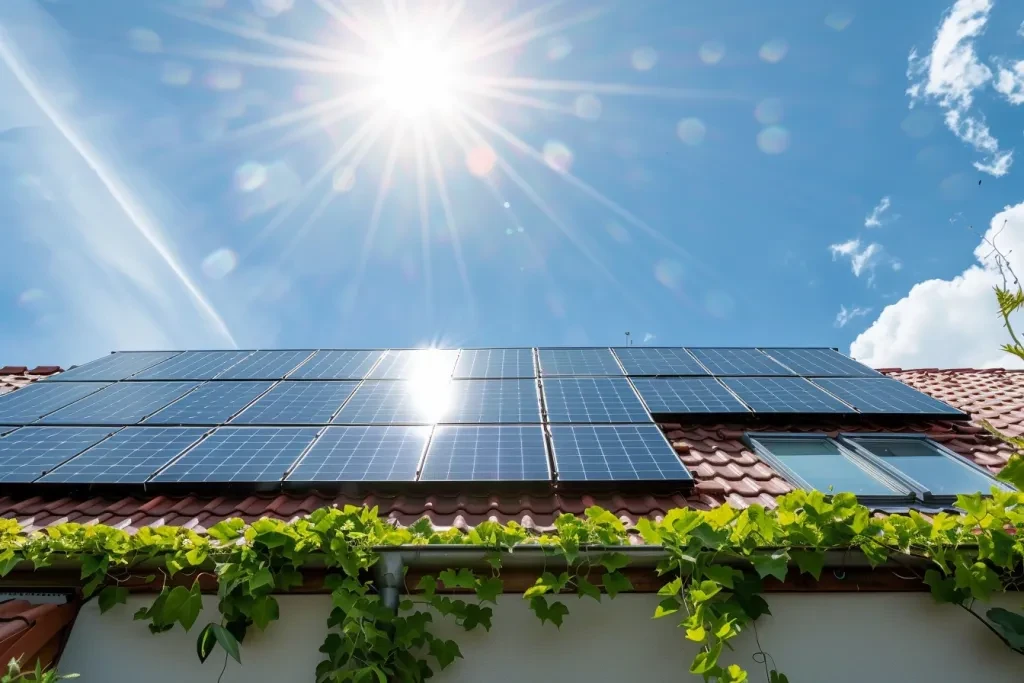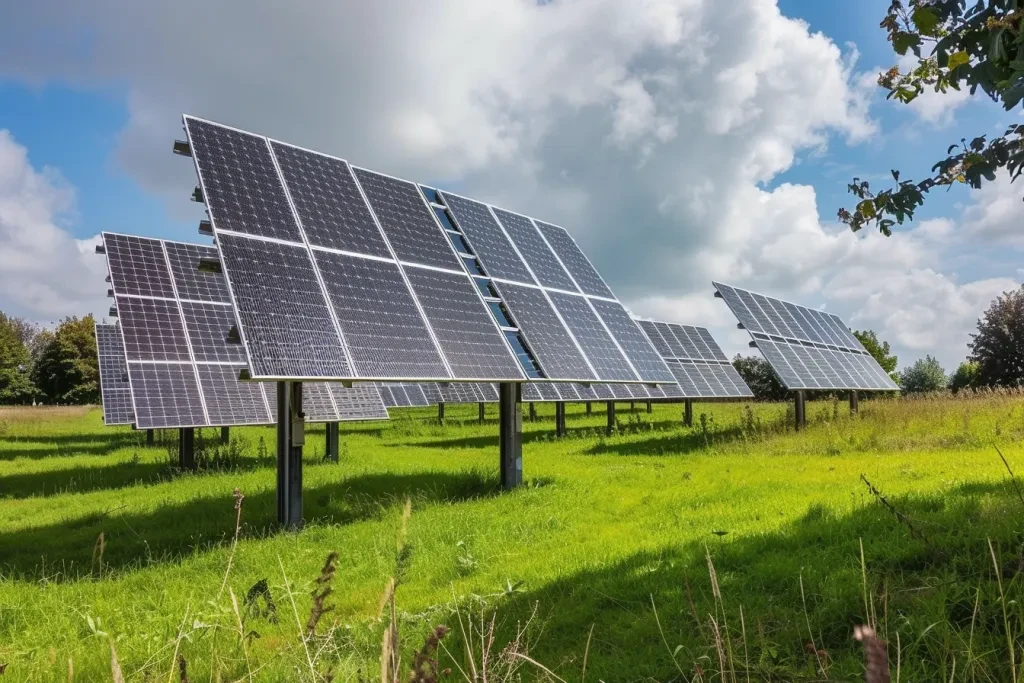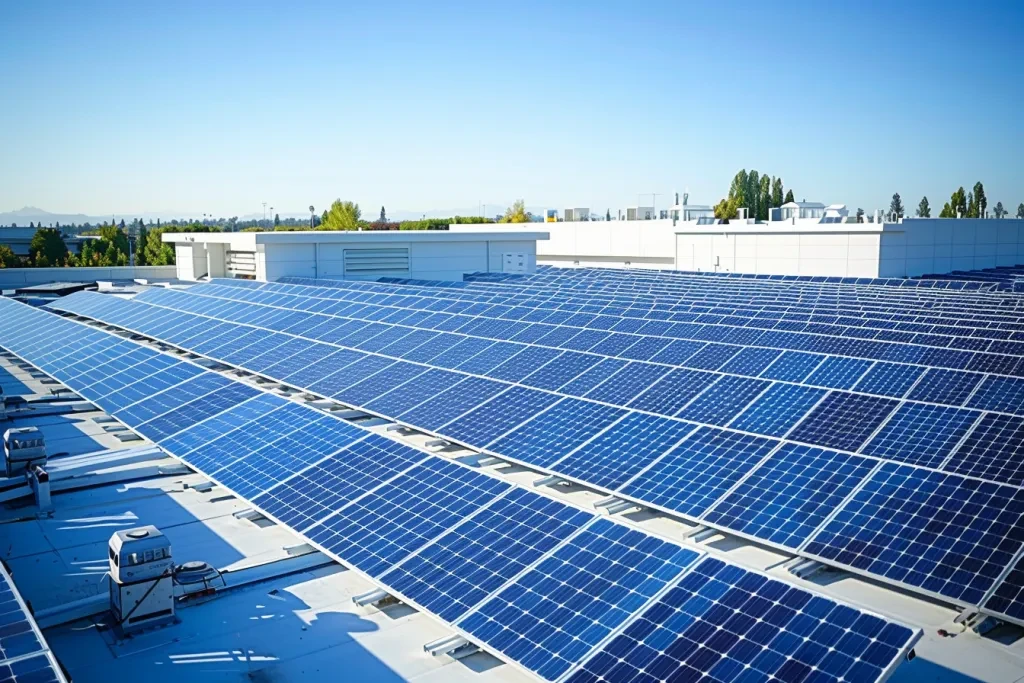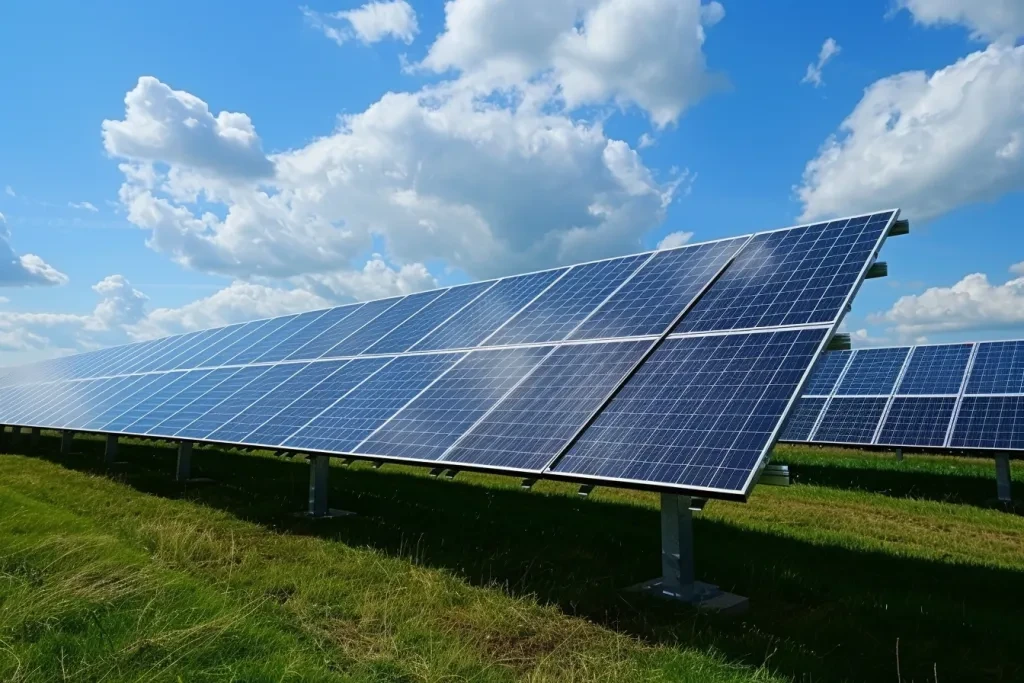In an age where renewable energy sources have gained a more significant role than ever, where there is constant talk and research about a much greener future, solar energy is undoubtedly one of the most promising sources of power we have at our disposal. So, what exactly is the solar energy definition and what does it have to do with our shift to a more environmentally-friendly world? This is why we decided to shed some light on the matter, by explaining in simple terms what solar energy is, what are the benefits of using it and how it works. Let’s start exploring what solar energy is and why it is so important for our future.
Table of Contents:
– What is solar energy?
– How does solar energy work?
– The benefits of solar energy
– The technology behind solar panels
– The future of solar energy
What is solar energy?

Solar energy is the light and heat we receive from the Sun. In a nutshell, solar energy could be defined as electricity that is created from sunlight, either through photovoltaics (PV) or via concentrating the Sun’s radiation into sources of heat that can power steam turbines or pistons. It is a clean, endless and, with dropping costs, increasingly less expensive form of power generation when compared with fossil fuels. The Sun is by far our planet’s most abundant source of energy, providing enough power in one hour to supply the entire world’s needs for a year.
How does solar energy work?

When sunlight is absorbed by the photovoltaic effect, the photons in sunlight excite the electrons in the semiconductors and force them away from their respective silicon atoms, forming what is called a hole. These holes, in turn, produce the flow of electrons, thus generating DC electricity. The process of transforming sunlight into electricity occurs by the photovoltaic effect, and solar panels consist of many solar cells, each with semiconductors that absorb photons from sunlight. The captured sunlight photons release electrons in the semiconductors and allow them to flow through the material to create DC electricity. DC electricity is then converted to alternating current (AC) – the type of electricity used in homes and for most appliances – through an inverter. Over the years, solar panels have become more efficient.
The benefits of solar energy

What’s not to like about solar energy? It is renewable (it won’t run out as long as the Sun exists). It reduces greenhouse gas emissions (it helps to mitigate climate change). It reduces our use of fossil fuels (it increases energy security and reduces the risk of fuel-price volatility). It increases the value of properties (it increases land values), and it creates jobs (in a growing green energy sector). Natural prices and the laws of comparative advantage limit the extent of the green economy, but that is what makes them laws. The costs of solar energy are falling due to technological improvements and experience effects (economies of scale) Finally, for homes and businesses, solar energy provides compensation for the higher retail prices the state forces on electricity consumers to subsidise solar energy. These are some of the moral and economic benefits of solar energy.
The technology behind solar panels

Solar technology that transforms sunshine into electricity has already come a long way. Modern solar cells are far more efficient, sturdy and versatile than in the past, with advances in bifacial solar panels that collect sunlight on both sides and the recent news of monolithic thin-film solar cells that are flexible and lightweight, instrumental in bending the solar cost curve downward and proving that solar energy represents the future of our energy mix. Growing innovation in solar battery storage is now helping to improve the ability of solar energy to be a viable source of power day and night.
The future of solar energy

The answer to that question is an unequivocal yes: solar energy is here to stay because it is constantly becoming more efficient and cost-effective. It will also expand rapidly in the coming years with supporting policies and carries the potential to be one of the most important forms of renewable energy in the global transition from fossil fuels to a low-carbon energy future. To start with, the combination of technological innovation and public policies will help solar energy to reach unprecedented efficiency and cost-saving levels. If this is impossible in some areas, they can exploit the sun to make hydrogen, which they can then store. Secondly, solar energy will become an increasingly available source of energy thanks to the recent integration with smart grids and community solar projects, which permit many more people to engage with and use solar energy. With more investment and research, solar energy has the potential to meet a large part of the world’s energy demand and reshape our energy landscape for the better.
Conclusion
While learning the meaning of the definition of solar energy is a good start when it comes to better appreciating what this renewable power source brings to the table, it’s just the beginning. How it works, why it’s transformational and what the future looks like for solar energy is a subject all to itself. This important shift to a new paradigm in energy production is a testament to human ingenuity and a commitment to future generations.




